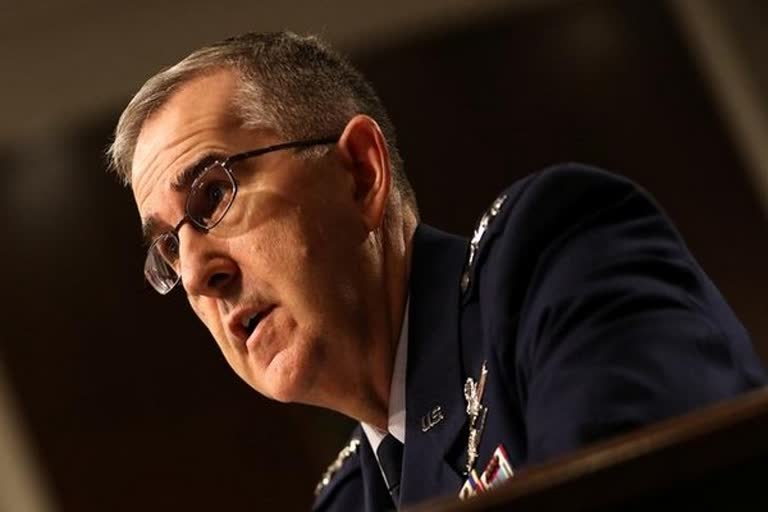Washington: A top US General on Thursday defended India's steps towards development and testing of anti-satellite (ASAT) missile capabilities, saying India developed itself for self-defence as it was "concerned about threats" from space.
During a Congressional hearing, United States Strategic Command Commander, General John E. Hyten, said, "I think the first lesson from the Indian A-SAT is why did they do that? The answer should be that it is because they are concerned about threats to their nation from space. They feel like they need a capability to defend themselves in space."
Hyten made these remarks while replying to a query raised by Senator Tim Kaine, who stated that debris created by India and China in space could pose a threat to the International Space Station (ISS). Expressing concern over increasing debris in space, Hyten said, "I have advocated for a long time for the norms of behaviour. And as the person responsible for space today, I do not want any more debris, but we do not have any norms in lines to control that."
Read more: Trade talks with US are 'moving forward': China
"I think that is how it should be worked in an international perspective to start walking down that path to make sure that space can be used for future generations. Eventually, we are going to get to a point where it is difficult to find a place to launch, to put a satellite, to operate a satellite. All of those things are very complicated, but it has to be worked at an international perspective," he added.
On March 27, India conducted its first successful test of an anti-satellite missile becoming the fourth country in the world after Russia, USA and China to possess this technology. Several countries and organisations including the National Aeronautics and Space Administration (NASA) had raised objections over the test, claiming 'space junk' might be dangerous for the ISS.
NASA chief, Jim Bridenstine, recently termed India's test of anti-satellite missile as "a terrible, terrible thing", saying that it is estimated that the risk to the ISS has increased by 44 per cent over the last ten days. He also said that the missile that shot down the satellite reportedly created at least 400 pieces of orbital debris, including 60 larger than 6-inch in size. However, India has allayed these concerns saying debris produced as a result of the test will decay within 45 days.
Also read: Ecuador withdraws Assange's citizenship



